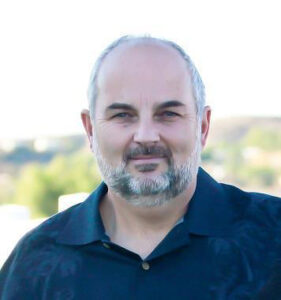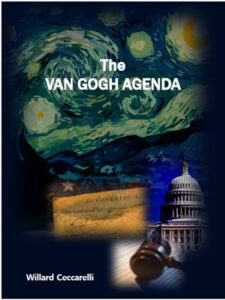 Willard Ceccarelli married his high school sweetheart and they just celebrated their 40th anniversary. In 1974, they moved to the wilds of Northern British Columbia where they lived a pioneer life-style—log cabins, outhouse, gardens, wood stoves and many cold winters. They had two sons during this time.
Willard Ceccarelli married his high school sweetheart and they just celebrated their 40th anniversary. In 1974, they moved to the wilds of Northern British Columbia where they lived a pioneer life-style—log cabins, outhouse, gardens, wood stoves and many cold winters. They had two sons during this time.
In 1982, the family moved back to California. A year later they found themselves homeless, with no car and no money. Fortunately, they landed in Loma Linda, where friends took them in for five months while Ceccarelli found a job at Loma Linda University. He adds, “I worked very hard, vowing to never place my family in that position again. Currently, I am an IT manager and have 22 people working for me. I am staring down the long tunnel towards retirement in a short few years.”
Ceccarelli started writing during his mid-30s. “I suppose a mixture of a midlife crisis and my rebellious hippy years gave me the desire to say something. I found an online writers’ group and took several online courses. I got the basics down and could see how to write. I could feel the passion to say what I wanted to say. During this time, I started writing my first novel, Reality Check. I also wrote another novel, The Van Gogh Agenda, which was born from my passion for Wyoming. Raising a family and with a demanding job, it took me 17 years to complete. At the SDSU Writer’s Conference, I paid for three reads and discussions with the agents. They labeled the book a political thriller,” he says.
 Regarding the writers’ conference, Ceccarelli says, “Conferences are the lifeblood to all authors. I will attend more as I free up time from the ball and chain of making a living. It is coming shortly. I promised my family I would never let us be homeless again. I have kept that promise! I am now at a place where I can spend more time working at my craft telling stories that are entertaining and worth reading.”
Regarding the writers’ conference, Ceccarelli says, “Conferences are the lifeblood to all authors. I will attend more as I free up time from the ball and chain of making a living. It is coming shortly. I promised my family I would never let us be homeless again. I have kept that promise! I am now at a place where I can spend more time working at my craft telling stories that are entertaining and worth reading.”
Ceccarelli’s Thoughts on the SDSU Writers’ Conference
I went to the 2010 conference and attended as many of the classes and panel discussions as I could fit in. I took notes and absorbed as much of the conference as I could. I spent time at the bar in the hotel with other prospective writers and we talked a lot. I paid for three reads with potential agents. I received good feedback and made the necessary adjustments they asked for.
I definitely fall into the intimated category and the thought of a writers’ conference can be scary. I was an extravert around my friends, but put me in an environment like a conference and I pull into my introverted shell. I was out of my comfort zone and had to force myself to talk with people. Looking back at that experience, I was totally by myself. I think that was a good idea. If I had attended with a friend, or convinced my wife to come along, it would have been too easy to lean on them for conversation and perhaps pass up on the opportunities at the conference. Being by myself pushed me to step out of my mental cave I hide in when in large crowds. My advice to anyone that wants to attend a conference is to do exactly what I did –go alone. Force yourself to ask to sit at a table with complete strangers. Walk up to a group standing in the hallway between classes and enter the conversation when appropriate.
I absolutely recommend the SDSU Writers’ Conference to others. You can learn so much from attending. I loved the guest speaker, Robert Dugoni. He was inspiring. I actually sat at a table at dinner with him. One thing an attendee will learn is just how hard it is to be an author. If you’re thinking you’re going to be famous, you will have a hard landing when coming back to earth. It can either inspire or discourage you. I would say make sure you write because you have a story to tell, a passion to write—not to get rich or famous.
The conference is a great opportunity to network. The uniqueness for me was how friendly and willing to share everyone was. I realized just how many people are in the exact same place I was—searching through the confusion and reality of how big this business is and how much it is going to change in the future. Is there a small place for my story and me?